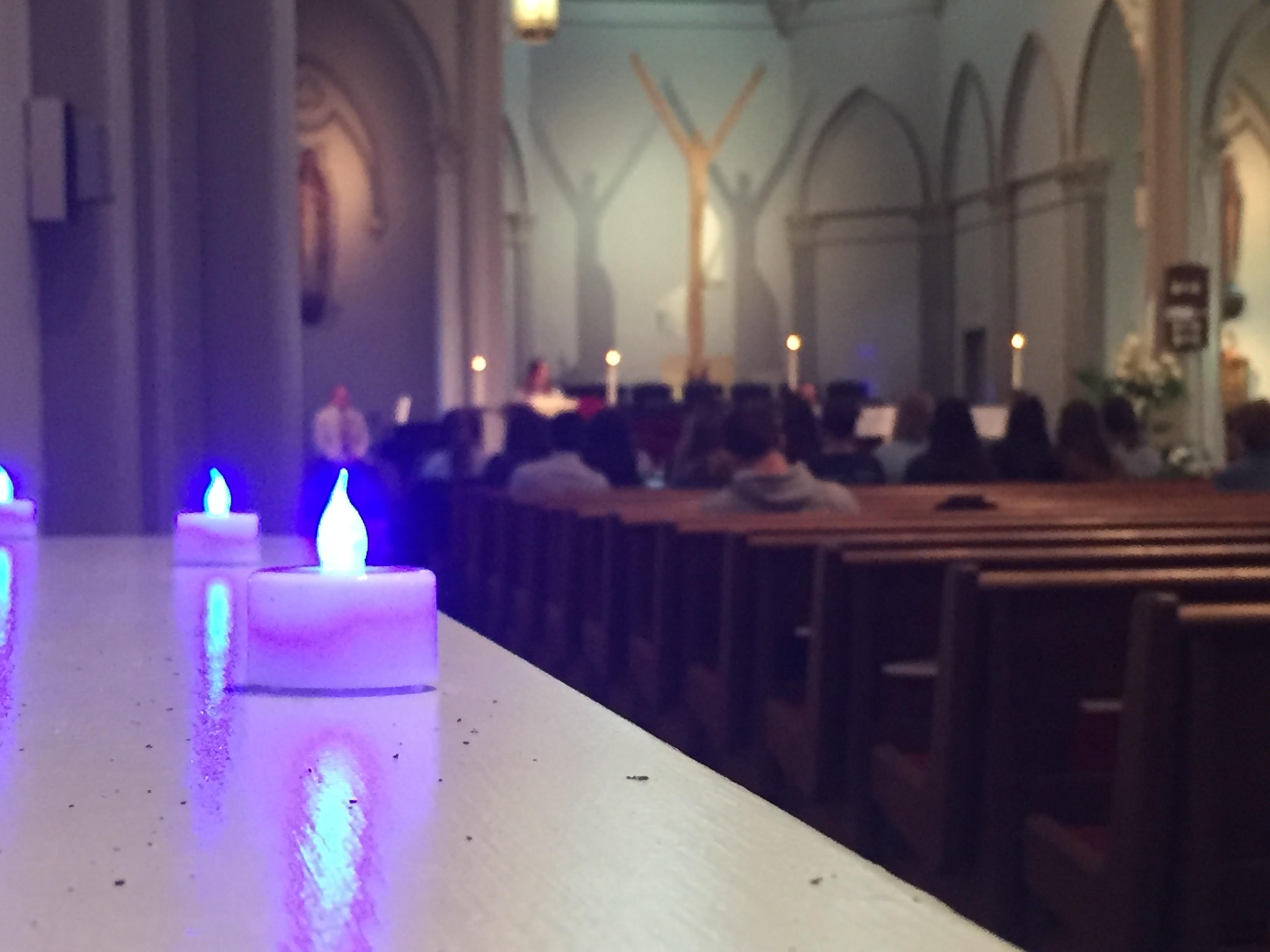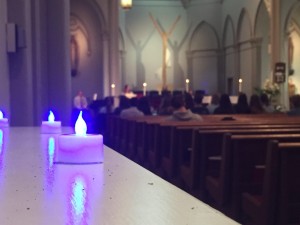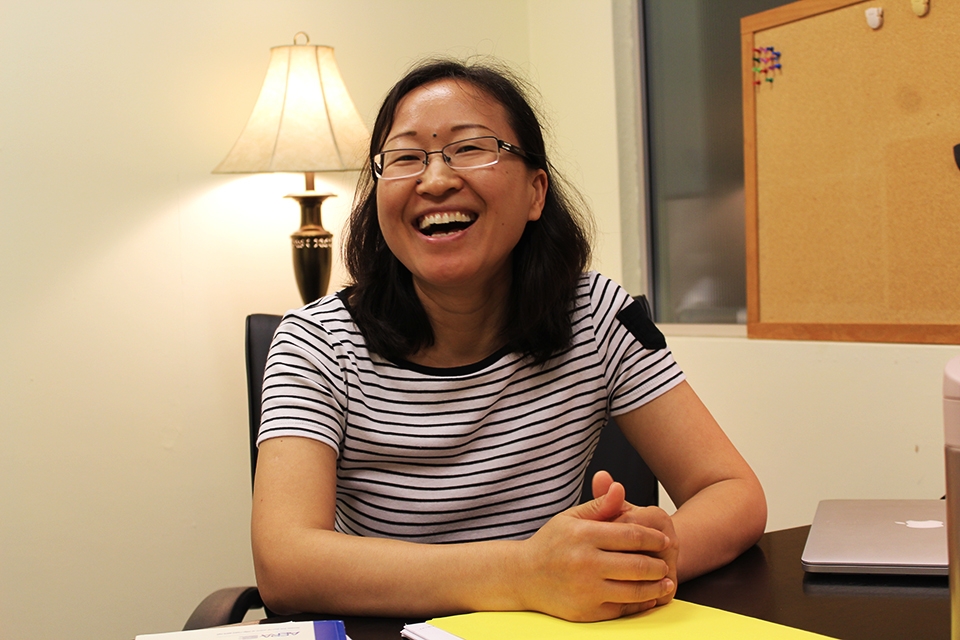

Blue candles illuminate the campus chapel Wednesday during a mass for childhood grief awareness. On April 20, a Duquesne social justice class will host child grief awareness events, including dyeing the campus fountains blue.
By Kailey Love | The Duquesne Duke
One in every 20 children will experience the death of a parent by the time they finish high school, according to the Highmark Caring Place. Young children especially have difficulty coping with loss.
“As I have listened to grieving children and families over the years, I see grief as an emotional, physical, and cognitive ‘Mack truck’ that hits you when you experience the death of someone close to you,” said Andrea Lurier, manager at the Highmark Caring Place.
To help raise awareness of childhood grief, a Duquesne class will host Childhood Grief Awareness Day events on campus on April 20.
Dr. Patricia Sheahan and students in her Social Justice class have made childhood grief awareness a large part of their curriculum.
Childhood Grief Awareness Day, founded by Highmark Caring Place and now universally recognized, is usually celebrated on the third Thursday in November.
However, due to their course schedule, the students of Sheahan’s class will be hosting next week’s event to help raise awareness for the day of recognition.
The class plans on hanging a banner in the middle of campus, which can be signed by anyone “who is [grieving] or knows someone who is,” and also will dye the campus fountains blue, according to Christina McElwee, a sophomore early childhood education major and one of the students participating.
“[The events] will hopefully get people talking about something that is not comfortable to talk about,” McElwee said.
There will also be a bake sale, photo booth and the opportunity to throw a pie in someone’s face, she said.
Lurier said childhood grief is “a complicated mixture of many feelings including shock, panic, anger, fear, guilt and sadness,” which children experience when a death occurs in their life.
“Many children say they have trouble concentrating, they feel distracted and disorganized,” she said.
“One boy told me that when he is at school, he can’t stop thinking about his mother who died.”
Lurier added it is “not uncommon” for children to experience physical changes as well — children have been known to have stomach aches, headaches and trouble sleeping after losing a loved one.
McElwee said she wants the day to promote awareness and solidarity.
“We are hoping to make people aware of the great things The Caring Place is doing in working with children and their families, as well as educating educators in how to help grieving children in their classrooms,” McElwee said.
“Most importantly, we are hoping to convey to children that they are not alone in their grief.”
The participating students request that the campus community wear blue on that day in support of the event.
“Grief isn’t something that simply goes away over time…as difficult as this journey is, with caring, attentive support, children learn to manage their grief – they realize that they will always miss their person, but they carry the hope that their grief won’t always hurt so much,” Lurier said.




